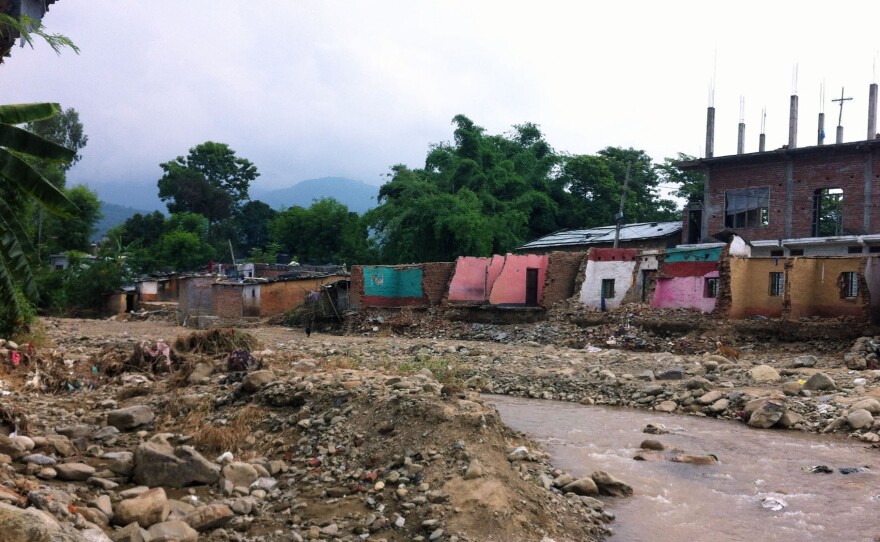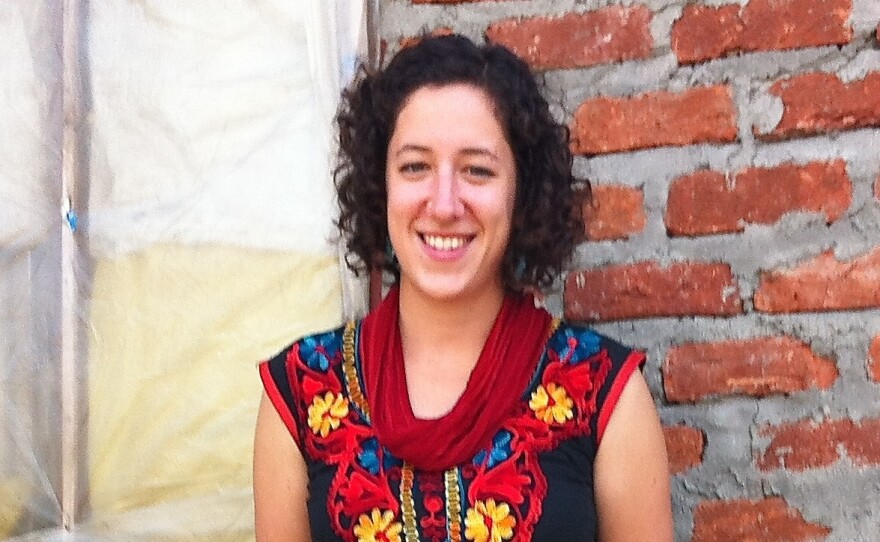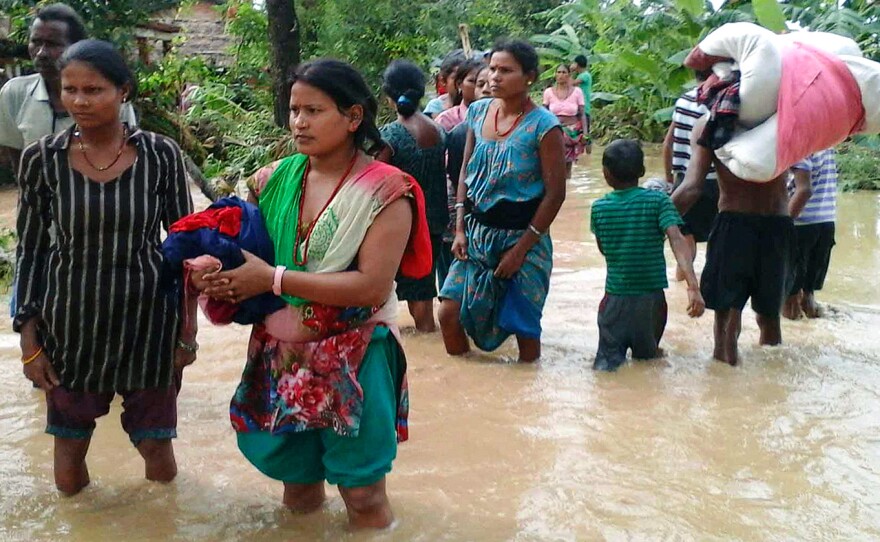

In August, monsoon rains brought flooding and landslides to Nepal on a massive scale.
Three days of constant rains inundated valleys. And huge swaths of land came tumbling down mountainsides in the western part of the country.
At one point, the lower portion of the Surkhet Valley — a lush river basin 30 miles wide — flooded up to 15 feet deep. Police patrolled the valley in a motorboat as if it were a lake.
More than 6,000 people have lost their homes in Surkhet District alone, the Nepal government estimates. Schools, roads and entire villages were washed away. Nearly 150 people are dead or missing.
As in many disasters, the poorest and most vulnerable people were hurt the most. In the capital of the district, almost all of the destroyed homes were in the slum neighborhoods — where people already struggle to get enough food each day. Now where homes stood, there are crumbled brick walls, stretches with just a pile of rocks or a few lonely columns.
Displaced families are living in schools, empty government buildings, open fields or in the forest. The International Red Cross and the local government have taken the lead in providing emergency aid, with the help of other NGOs.
Despite the flurry of activity, relief efforts have been slow to meet the needs of those displaced. One shelter I visited housed about 35 families in an open field. In a near parody of disaster relief, people told me they had been given:
- Tarps for sleeping under, but no mats and no blankets. So families have been sleeping on the bare ground in the middle of the rainy season.
- Food rations and pots and pans to cook with, but no firewood.
- A surplus of donated fabric and used clothing, but no money with which to tailor them. Many people had been wearing only the clothes on their backs since the flood in August.
- Several large tanks to store water for drinking and washing, but no water. Most people have been walking 20 minutes to a nearby pond full of stagnant water and carrying it back. There were no toilets.
A second shelter I visited had roofs, mats, blankets, water and even toilets. But upon arrival, several irate women came out to meet us telling us they were hungry. Apparently they had not been given food rations for two days.
After visiting the shelters, I told the director of the District Health Office that the water tanks in the shelters were empty. "They are?" he said, surprised. "I'll call the Water Office right now and tell them to fill them up."
Resources and funding are here to help, but the planning, coordination and management are lacking. With so many players in the mix and the disaster still so fresh, it's no surprise that water tanks sit empty when water could easily be piped in, or that one shelter ends up with a room full of unused clothing and another has none at all.
It's possible that things here will get even worse before they get better. Malnutrition and disease will set in if food and medical aid continue to be delivered in a haphazard and delayed fashion.
Disaster relief is a complex science. Even a strong government, like the U.S. can struggle to find its bearings immediately after a disaster. Look at the missteps that plagued the efforts after Hurricane Katrina.
Nepal, with its fledgling government, has bigger hurdles ahead. Luckily, Surkhet's disaster is on a smaller scale than a New Orleans, or a Haiti. I'm hoping that what I've seen so far is just the first faltering footsteps on what will be a long, but steady, road to recovery.
Copyright 2014 NPR. To see more, visit http://www.npr.org/.






